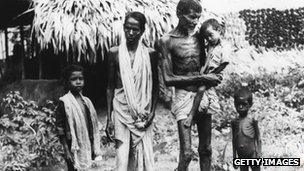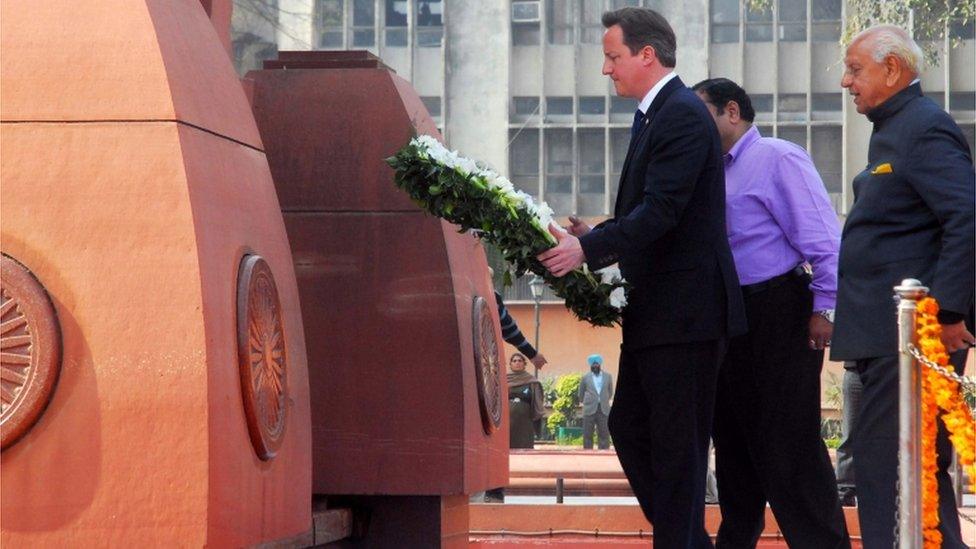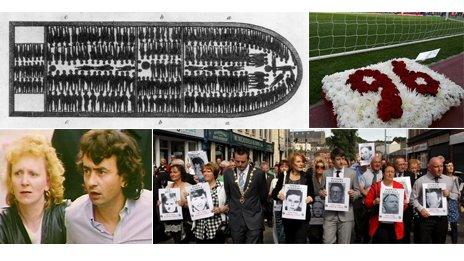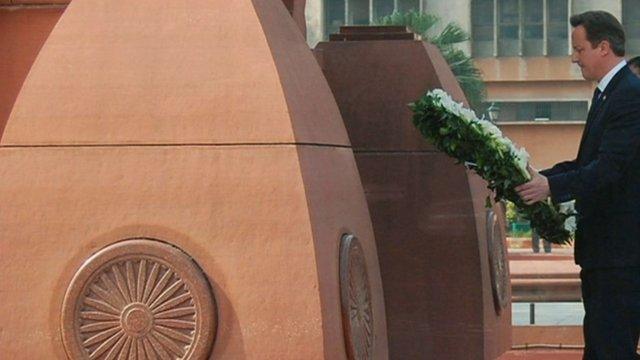What David Cameron did not apologise for
- Published
- comments

The Bengal Famine is one of the most controversial episodes in the history of the Raj
By making a statement of regret over the Jallianwala Bagh massacre, David Cameron has opened up a can of other questions and grievances over Britain's colonial past.
What about the British museum returning all the treasures looted from India during the Raj? What about sending back the Kohinoor diamond, external still embedded in Queen Elizabeth's crown?
And many commenting on this blog say it shouldn't stop at India - what about the many casualties of Britain's wars in Afghanistan?
But if Britain is in the mood to say sorry in India, there is one episode which stands out more than the Jallianwala Bagh massacre - the 1943 Bengal famine, external, when over 3 million people may have died, four years before the end of British rule.
If it gets any attention in the UK, it's seen as one more tragic consequence of World War II, with British India at the time focused on the war against Japan.
But British actions and opposition towards Gandhi's Quit India movement are now seen to have played a key role in the disaster.
While Winston Churchill condemned the Jallianwala Bagh massacre as "monstrous", he took a very different attitude to Indian suffering 24 years later as prime minister.
His only reply to a telegram reporting how many Bengalis were perishing was to ask "why Gandhi hadn't died yet."
Mr Cameron should have apologised for the famine says Madhusree Mukherjee, who has written a widely praised, external history of the Bengali famine.
And why not? Tony Blair expressed regret for the Irish potato famine, external and for Britain's role in the slave trade.
British officials say the motivation for going to Jallianwala Bagh was not to apologise for the Raj.
"He wanted to express his condolences for that particular incident because he was visiting Amritsar," said a Downing Street spokesperson.
Madhusree Mukherjee says the prime minister may have wanted to avoid going further because "any admission of wrongdoing could facilitate a legal claim for reparations".
The chief reason Mr Cameron went to Amritsar was because of the large numbers of voters of Punjabi origin back in the UK. So he had to say something about Jallianwala Bagh, officials say.
Many dismiss the practice of political apologies for past events as meaningless. Mr Blair, critics say, could easily say sorry for the Irish famine, but was never going to apologise for the Iraq war.
But David Cameron has set a precedent now in India, with his desire for "a special relationship". If he plans a trip to Calcutta while he's still prime minister, he won't be able to avoid the Bengal famine.
- Published20 February 2013

- Published20 February 2013

- Published20 February 2013
